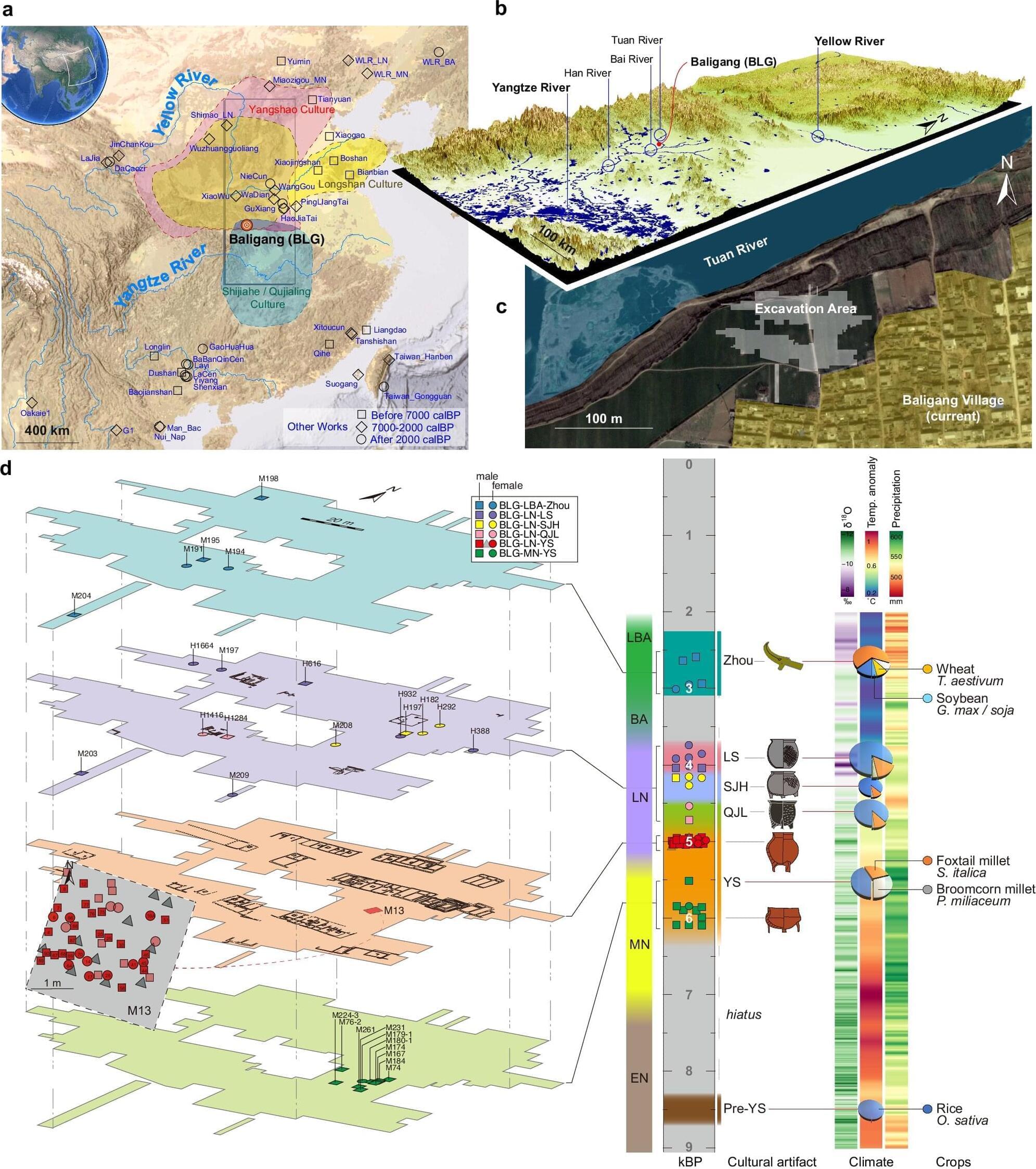Scientists from Peking University have uncovered new genetic evidence that sheds light on how prehistoric people in China interacted, migrated, and built their communities. Led by Professors Huang Yanyi and Pang Yuhong from the Biomedical Pioneering Innovation Center (BIOPIC), the research reveals the first direct genetic proof of a patrilineal social system in Neolithic China.
The study, conducted in collaboration with Yunnan University and Minzu University of China, was published in Nature Communications on September 30, 2025.
The story of Chinese civilization begins along two great rivers: the Yellow River, known for its millet-farming cultures, and the Yangtze River, home to early rice agriculture. How people in these regions exchanged ideas, adapted to environmental shifts, and shaped early societies has long fascinated archaeologists and historians.
